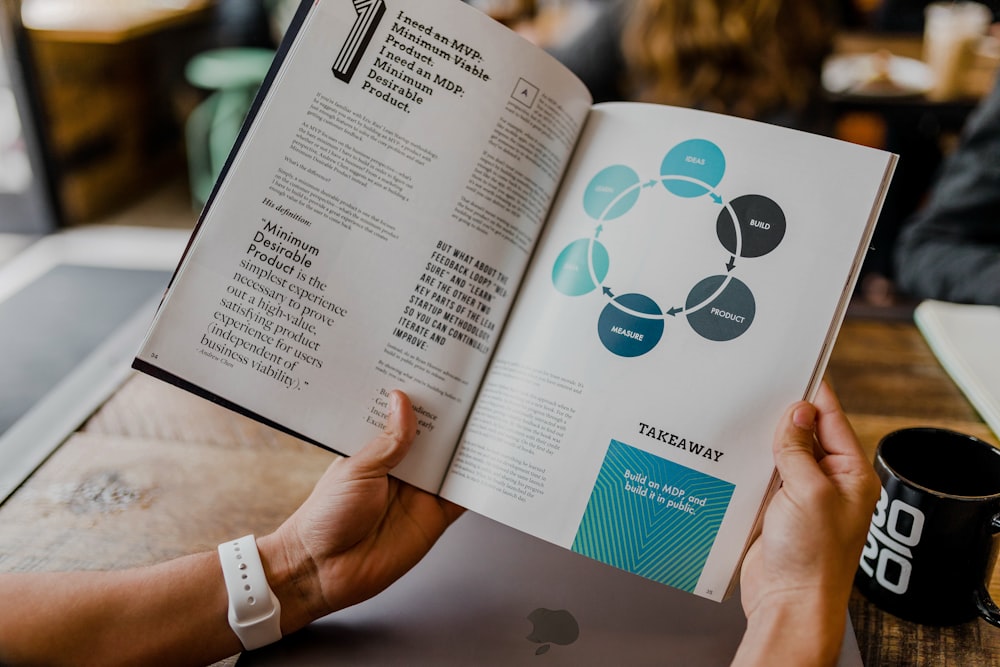
The Non-Technical Founder's Comprehensive Guide to Building a Startup or Minimum Viable Product (MVP)
Created with AI.
The journey of creating a startup or developing a Minimum Viable Product (MVP) as a non-technical founder can seem daunting. However, with the right steps, tools, and mindset, you can successfully navigate this journey and transform your idea into a viable venture.
1. Understanding the Essential Basics
1.1 The Concept of MVP
A Minimum Viable Product (MVP) is a version of a new product that is developed with just enough features to satisfy early adopters and provide feedback for future product development. It is a practical approach to validate your business idea before investing a significant amount of time, effort, and resources into full-scale product development.
1.2 The Role of a Non-Technical Founder
As a non-technical founder, your role is not limited to the ideation phase. You are also responsible for understanding the market, defining the product, building a team, securing funding, and steering the business towards success. Your innate understanding of the problem your product aims to solve and the value it offers to customers is crucial to the startup’s success.
2. Defining Your Idea and Identifying Core Features
The first step towards building your startup or MVP is to clearly define your idea and identify the core features that are essential for your product to function as intended. This process helps you narrow down your focus and create a simple MVP that addresses the most critical aspects of your concept.
3. Conducting Market Research and Identifying Problems
Before you dive into building your MVP, it’s crucial to conduct detailed market research to identify pain points and opportunities. By understanding your target audience and their needs, you can shape your product to effectively solve their problems.
4. Building the Right Team
Building a successful startup requires a cohesive team with diverse skills. As a non-technical founder, one of your key responsibilities is to identify the essential roles and skills your team needs and to onboard the right people to fill these roles.
5. Establishing a Technical Roadmap
Creating a clear, realistic roadmap for your development process is crucial. Your roadmap should account for scalability and flexibility, enabling you to adapt and make changes as you navigate the development process.
6. Securing Funding
Securing funding for your tech startup is crucial. Depending on your needs and circumstances, you can explore various funding options such as bootstrapping, crowdfunding, angel investment, or venture capital.
7. Exploring No-Code Platforms
No-code platforms are a boon for non-technical founders. These platforms, such as Bubble and Webflow, enable you to create an MVP without any coding skills. You can create a basic design or wireframe to show how your product will look and function.
8. Creating a Prototype and Gathering Feedback
Once you have identified the essential features and chosen the right platform, the next step is to create a prototype or mockup of your product. This prototype can then be shared with potential users or customers to gather feedback and identify areas for improvement.
9. Iterating Based on Feedback
Based on the feedback you receive, you should iterate on your MVP and make changes to improve the product. Remember, an MVP is just the first version of your product, and it’s normal to make changes and updates as you learn more about your users and their needs.
10. Launching Your MVP
Once you’ve iterated on your MVP and it’s solving the problems of your target market, it’s time to launch. At this stage, focus on polishing your product to provide a solid user experience rather than adding more features.
11. Marketing Your Product
Marketing is a critical aspect of building a startup. From day one, you should be focused on knowing and developing your market. This includes market research, competitive analysis, building industry assets, and building potential market share through various channels.
12. Navigating Challenges
Building a startup or an MVP as a non-technical founder is not without its challenges. However, with the right mindset, determination, and resources, these challenges can be successfully navigated. Remember, building a product is easy. Building a business is hard. But with the right approach, success is attainable.
In conclusion, being a non-technical founder in the tech industry may seem daunting, but with the right steps and understanding, you can build a successful startup or MVP. The journey will require dedication, resilience, and a constant learning mindset. However, the reward of seeing your idea transform into a viable, productive business makes the journey worthwhile.